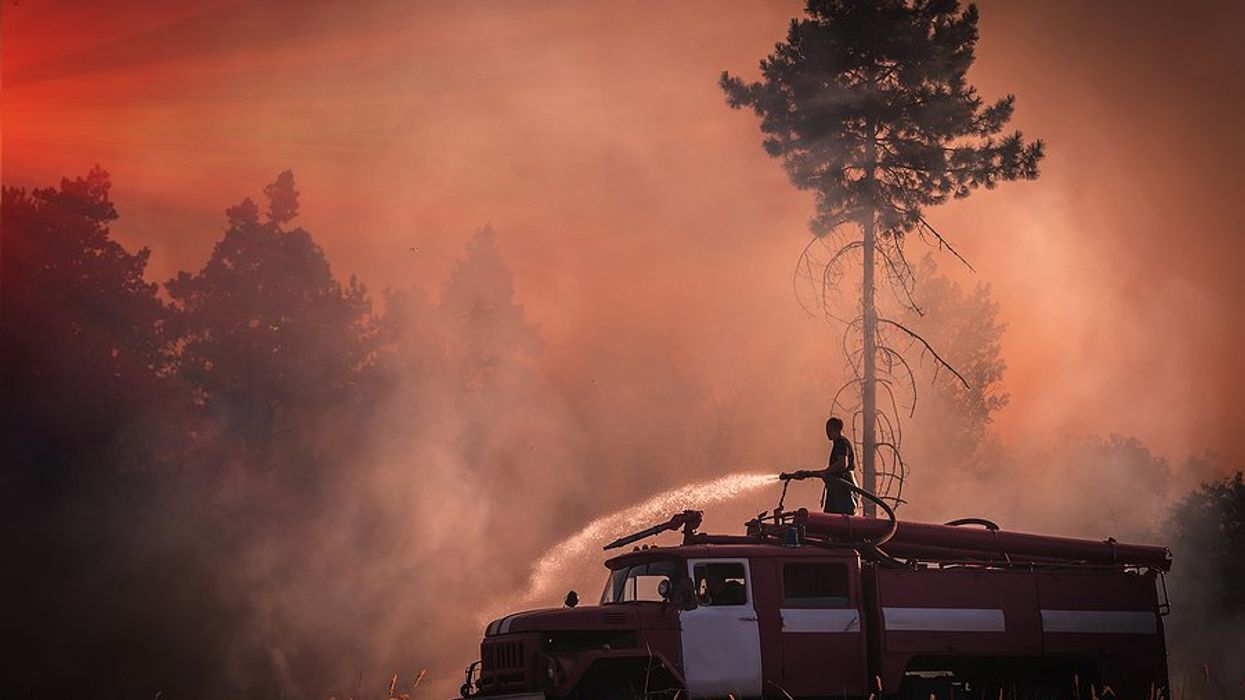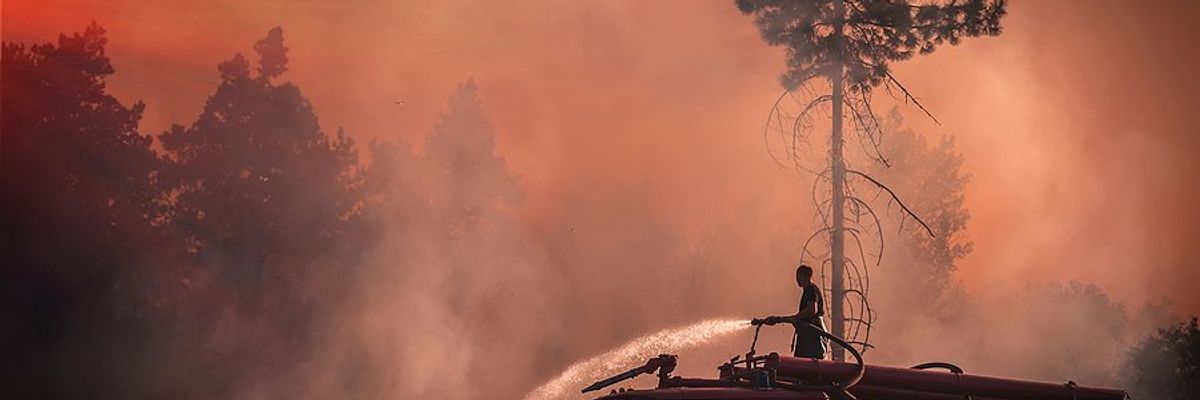Climate-fueled drought and heat are forcing firefighters and ecologists from France to California to rethink how forests are managed and protected.
Jeannette Cwienk reports for Deutsche Welle.
In short:
- A wildfire in southern France has grown larger than Paris, echoing blazes now hitting Spain, Portugal, and other drought-stricken regions.
- Experts say mixed, healthy deciduous forests resist fire better than dry pine or eucalyptus monocultures, and recommend thinning grasses, clearing brush, and using prescribed burns to cut fuel loads.
- Early detection cameras, well-placed firebreaks, and ready water sources can slow fast-moving flames, but planners warn that hotter, drier conditions will keep raising baseline risk.
Key quote:
“Climate change has created a rapidly changing situation in which it is getting hotter and hotter worldwide and drier and drier in many places, and the risk of forest fires is increasing.”
— Albert Wodtke, forest expert, World Wildlife Fund
Why this matters:
Wildfire smoke now travels thousands of miles, sending fine particles deep into human lungs and raising emergency-room visits for heart and breathing problems even in cities far from the flames. Charred watersheds shed ash into rivers that supply drinking water, while scorched soils release stored carbon and wipe out wildlife habitat in a single afternoon. In Europe alone, the 2025 fire season has already erased decades-old climate gains by turning forests from carbon sinks into carbon sources; similar shifts are under way across the Amazon, Indonesia, and western North America.
Related: New protections for nature must account for climate risks, scientists say
















